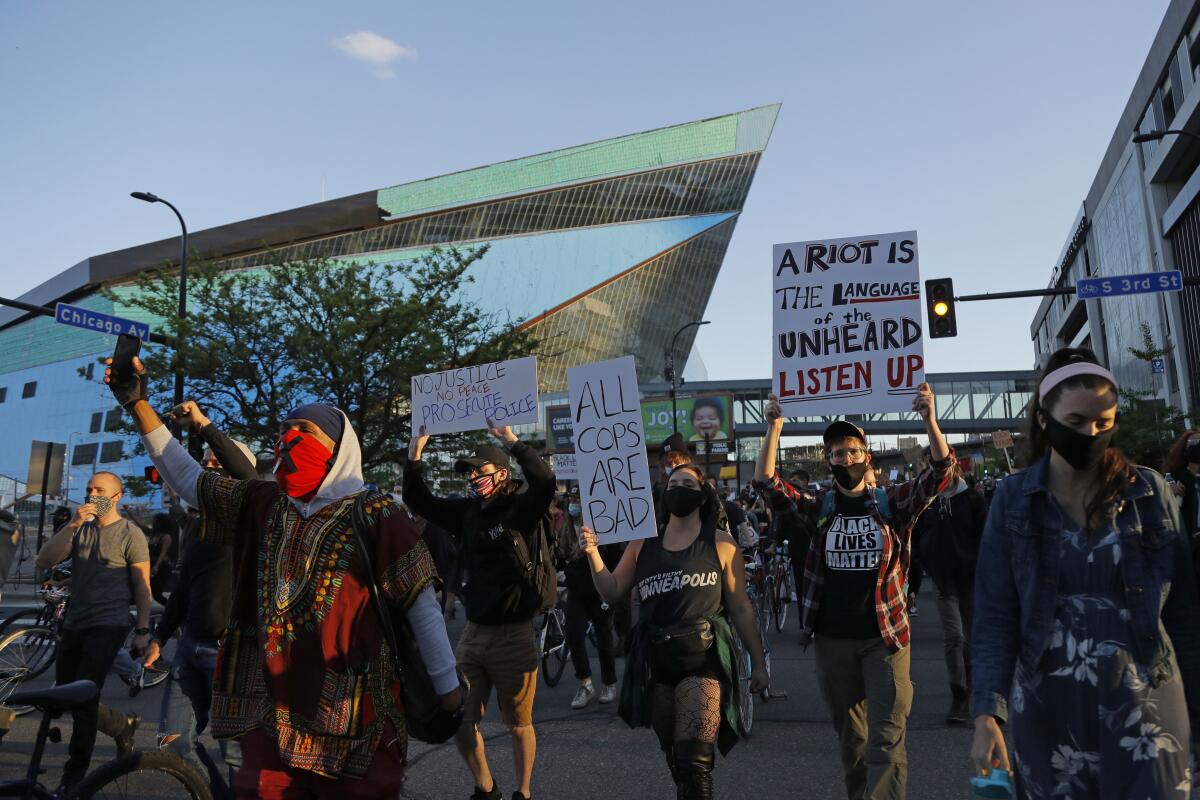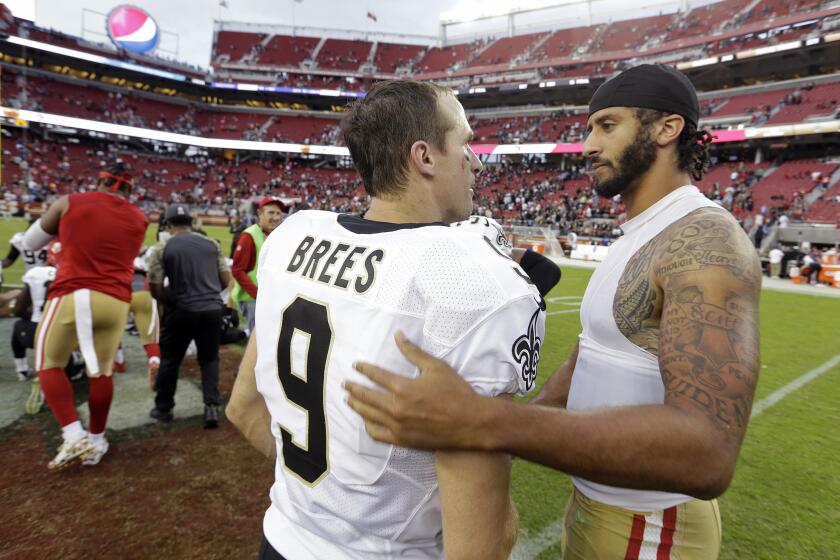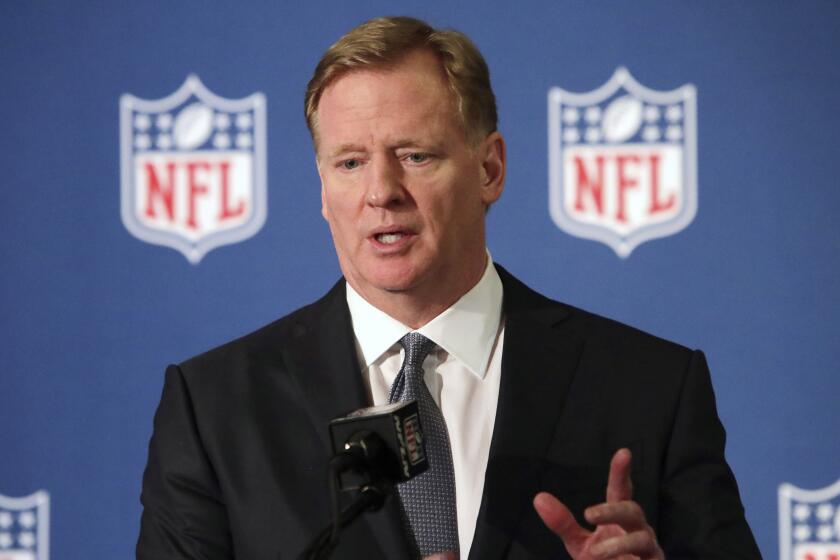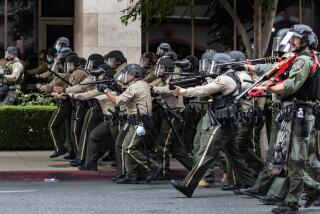Vikings say they want to help bring people together

- Share via
A collection of Minnesota Vikings players, coaches and executives participated in a video call with reporters Wednesday to discuss race relations, police brutality, criminal justice reform and the worldwide reverberations after the death of George Floyd when a Minneapolis police officer knelt on his neck for more than eight minutes.
“If you haven’t really experienced something, or it’s not something you deal with on a daily basis, you can be blinded about a topic or an issue,” safety Anthony Harris said. “With all the events going on, and the advancement of technology, being able to catch things on camera … the videos allow you to insert yourself into a situation and be able to understand from a human perspective what’s going on.”
Andre Patterson, the Vikings defensive line coach, delivered an impassioned argument about why this case could inspire the kind of impactful change that others haven’t.
“I’m a child of the ‘60s; this has been going on my whole life,” Patterson said. “The question is, is this different? I’m going to say it’s different, and here’s why: Through time, the Black community has been telling the world that this has been going on. A lot of people didn’t want to believe that it was going on, that the person had to do something wrong to get choked to death or shot or whatever.
More than 1,400 pro athletes, coaches and executives signed a letter asking Congress to eliminate qualified immunity for law enforcement and public officials.
“But this is different because the whole world got to see life leave that man’s body. The whole world got to see that. So that changed everything. Not only did they get to see him lose his life, they got to see it from start to finish. So that’s why you see the protests you do.”
The Vikings announced that the Wilf family, which owns the team, plans to donate $5 million to social justice causes and will establish a scholarship in Floyd’s name.
“Our whole focus now is what we can do and how we can create positive change,” Vikings general manager Rick Spielman said. “You want to bring people together.”
Essential to that, linebacker Eric Kendricks said, is helping former prisoners find jobs and housing as well as reintegrate into society.
“I feel like our country as a whole, for our inmates, they just shun them,” said Kendricks, a onetime UCLA standout. “Once you have a conviction, once you have a felony on your record, it’s like we just disown you. You get out of jail, you serve your time, and you can’t get a job.
“How are you supposed to get off probation if you can’t get a job and can’t get housing? You can’t. It’s a trap.”
NFL Commissioner Roger Goodell issued an in-depth memo to the 32 teams, outlining the protocols for when players are allowed to return to team facilities.
NFL Commissioner Roger Goodell released a video on social media Friday night saying the league was “wrong” for not listening to players earlier about inequality and police misconduct while encouraging “all to speak out and peacefully protest.”
Vikings running back Ameer Abdullah said he appreciates the words but is waiting for deeds.
“With Goodell coming out and saying what he said about seeing it though a different lens is great,” Abdullah said. “Now it’s time to get action. Those are some of the steps that you guys are seeing.”
Noting the NFL is more united than he can remember, Abdullah said: “As far as how society will look in five years? Of course we want no racism. But we know these things don’t happen overnight. It’s been hundreds of years and racism still persists. I think right now it’s about making sure the right departments aren’t corrupted by racism, that certain people who hold certain power aren’t corrupted by racism.
“The NFL can be a big catalyst for change, both with our voices and with a lot of the campaigns we can start.”
More to Read
Go beyond the scoreboard
Get the latest on L.A.'s teams in the daily Sports Report newsletter.
You may occasionally receive promotional content from the Los Angeles Times.













